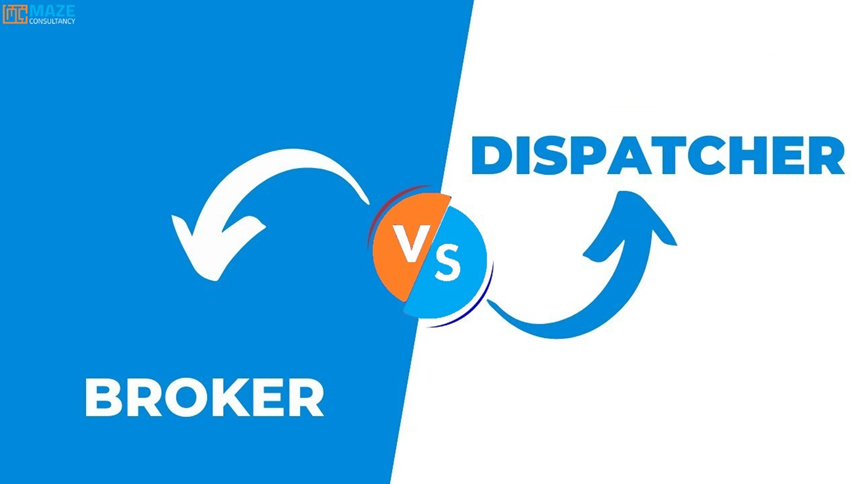Sure! Here’s a detailed look at how dispatching operates across different types of businesses:
1. Transportation and Logistics
Trucking Companies: Dispatchers in trucking coordinate the entire logistics of moving goods. They manage the assignment of loads to drivers, plan optimal routes to minimize delays and fuel consumption, and handle communication between drivers and the company. Dispatchers also monitor the progress of deliveries and address any issues that arise, such as traffic or vehicle breakdowns, ensuring timely and efficient transportation.
Courier Services: In courier services, dispatchers oversee the scheduling of deliveries and pick-ups. They assign tasks to drivers based on proximity, urgency, and the volume of packages. By using routing software, dispatchers optimize delivery routes to reduce travel time and fuel costs, and they also handle customer service inquiries related to delivery status or changes.
Public Transit: For public transit systems, dispatchers manage the schedules of buses, trains, or trams. They ensure that vehicles adhere to timetables, handle delays, and reroute vehicles if necessary. Dispatchers also coordinate with drivers and maintenance teams to address any operational issues and to ensure that public transportation remains reliable and efficient.
2. Emergency Services
Police, Fire, and EMS: Dispatchers in emergency services are responsible for receiving and triaging emergency calls. They assess the nature of the emergency and prioritize the response based on urgency and resource availability. Dispatchers then coordinate with police officers, firefighters, or emergency medical teams to dispatch the appropriate units and provide real-time updates during incidents.
3. Healthcare Services
Ambulance Services: In ambulance services, dispatchers handle requests for medical emergencies, coordinate ambulance responses, and manage the allocation of emergency medical personnel. They ensure that ambulances are dispatched quickly and efficiently to the scene of an emergency, and they also communicate with hospitals to prepare for patient arrivals.
Home Health Care: Dispatchers in home health care coordinate visits by nurses, therapists, and other healthcare professionals to patients’ homes. They schedule appointments, manage changes in schedules, and ensure that staff have the necessary information about each patient’s needs. Effective dispatching helps in providing timely and consistent care to patients.
4. Field Services
Utilities (Electricity, Gas, Water): Dispatchers in utility companies manage the deployment of field technicians for maintenance and emergency repairs. They schedule and prioritize work orders, ensuring that technicians address issues such as outages or leaks efficiently. Dispatchers also track the status of repairs and update customers on progress.
HVAC and Plumbing: In HVAC (heating, ventilation, and air conditioning) and plumbing services, dispatchers schedule service calls, assign jobs to technicians based on their expertise and location, and manage the logistics of equipment and parts needed for repairs. They ensure that technicians arrive on time and handle customer requests effectively.
5. Construction and Maintenance
Construction Companies: For construction firms, dispatchers manage the allocation of resources, including equipment, materials, and labor. They coordinate the delivery of supplies to job sites, schedule equipment usage, and ensure that construction timelines are met. Effective dispatching helps in preventing delays and maintaining workflow efficiency.
Landscaping Services: Dispatchers in landscaping coordinate the scheduling of work crews for tasks such as lawn care, planting, and maintenance. They manage logistics, ensuring that crews have the necessary tools and materials, and handle customer scheduling requests to optimize service delivery.
6. Retail and Delivery Services
Food Delivery: In food delivery services, dispatchers manage the routing of delivery drivers to ensure that food reaches customers quickly and efficiently. They handle the scheduling of deliveries, optimize routes using GPS technology, and address any issues that arise during the delivery process.
Retail Logistics: For retail businesses, dispatchers oversee the movement of goods from warehouses to retail locations. They coordinate shipping schedules, manage inventory levels, and ensure timely delivery of products to stores, which helps in maintaining stock levels and meeting customer demand.
7. Event Management
Event Staffing: Dispatchers in event management coordinate the deployment of staff and equipment for events such as conferences, concerts, or exhibitions. They schedule shifts, manage logistics for setup and teardown, and ensure that all aspects of the event run smoothly.
Transport Logistics for Events: For large events, dispatchers handle the transportation of attendees, equipment, and supplies. They manage shuttle services, coordinate vehicle usage, and ensure that all logistical aspects of transport are efficiently planned and executed.
8. Freight and Shipping
Freight Forwarding: In freight forwarding, dispatchers coordinate the movement of goods across international borders. They manage shipping schedules, handle documentation, and communicate with carriers and customs to ensure that shipments are processed efficiently and comply with regulations.
Shipping Companies: Dispatchers in shipping companies manage the scheduling and routing of cargo ships. They oversee port operations, coordinate the loading and unloading of goods, and ensure that vessels adhere to schedules while managing any issues that may affect shipping timelines.
9. Technical Support and IT Services
Field IT Services: For IT services that require on-site support, dispatchers schedule and manage appointments for technicians. They ensure that technicians are dispatched to the right locations with the necessary tools and information to resolve technical issues effectively.
Technical Service Calls: Dispatchers in technical service companies handle the scheduling of support calls, manage technician assignments, and coordinate follow-ups to ensure that service requests are addressed promptly and effectively.
10. Waste Management
Waste Collection: Dispatchers in waste management coordinate collection routes and schedules for garbage and recycling trucks. They manage the logistics of waste collection, optimize routes to improve efficiency, and handle issues such as missed pickups or changes in collection schedules.
Dispatching is integral to the smooth operation of these businesses, ensuring that resources are utilized efficiently, schedules are maintained, and customer needs are met effectively.and service quality.

























